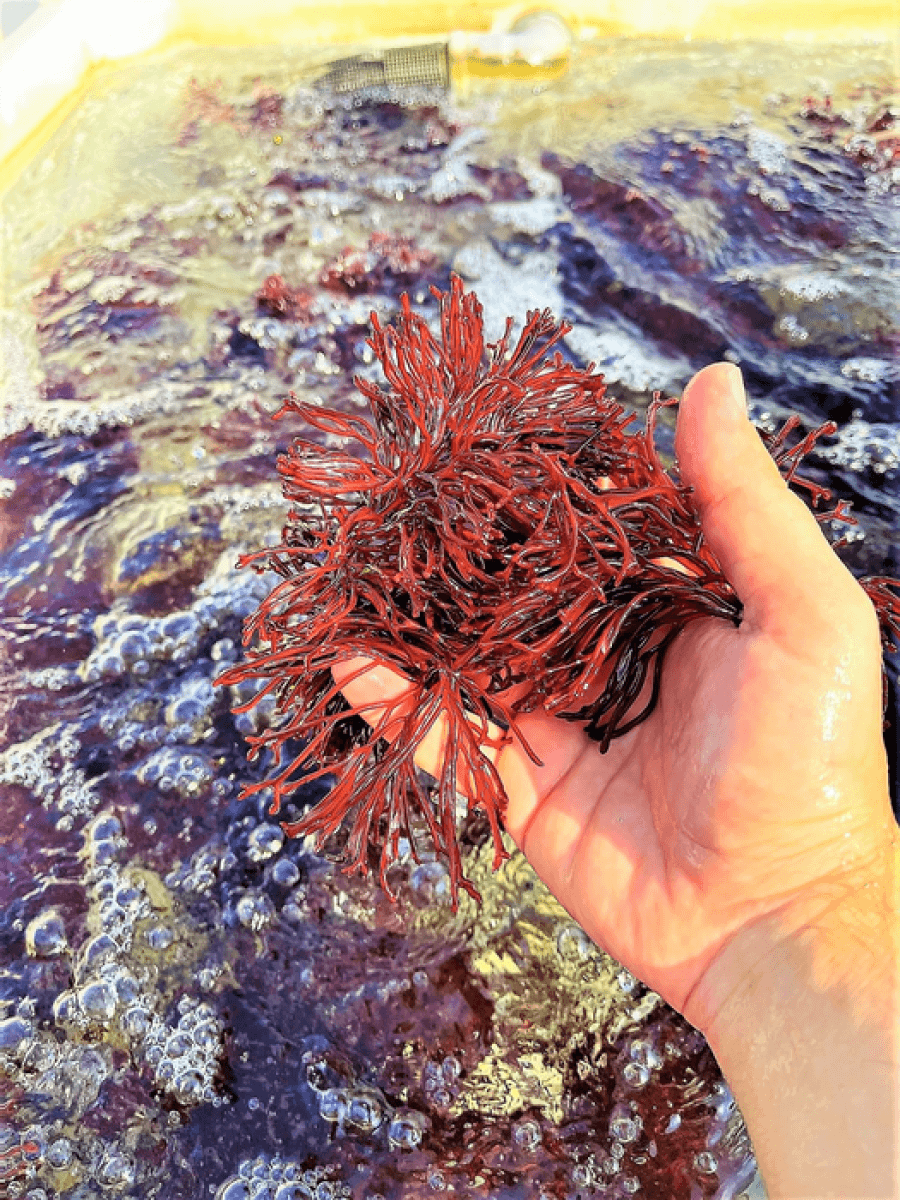TEL-AVIV, Israel — There is a new way to enhance seaweed, a development that benefits the superfood, pharmaceutical, and cosmetic industries, scientists say. A team from Tel Aviv University and the Israel Oceanographic and Limnological Research Institute have succeeded in doubling the antioxidants found in seaweed, tripling its natural sunscreen quantity, and increasing its unique protective pigments of high medical value ten-fold.
The new study makes groundbreaking contributions to the field of marine-derived health and medicinal compounds.
“Seaweed, also known as macroalgae, are marine plants that form the basis of the coastal marine ecosystem. The seaweed absorb carbon dioxide and release oxygen into the environment. They purify the water, provide food, habitat, and shelter for numerous species of fish and invertebrates,” says study author and doctoral study Doron Ashkenazi in a media release. “Not many are aware of it, however on top of all that, seaweed produce a wide variety of distinct bio-active compounds that are beneficial to humans.”
Seaweed living in the intertidal zone endure extreme stress conditions such as changes in salinity, temperature, nutrient availability, and high exposure to solar radiation. To survive, they have developed unique chemical defense mechanisms, producing natural compounds that help them cope with these harsh environments.

The research team cultivated three local seaweed types – Ulva, Gracilaria, and Hypnea – alongside fish effluents, and then exposed them to various stress conditions like high irradiance, nutrient starvation, and high salinity. They examined how these changes affected the concentration of valuable biomaterials in the seaweed, with the goal of enhancing their production.
“We developed optimal cultivation conditions and devised a new, clean method to boost the levels of healthy, natural bioactive compounds in seaweed,” explains Ashkenazi. “We essentially created ‘super seaweed’ designed specifically for use in emerging health industries for food and health applications.”
The team believes that their methodology can be applied globally in the seaweed aquaculture industry. They hope to imbue seaweed with additional natural substances possessing significant medical properties, such as anti-cancer, anti-diabetic, anti-inflammatory, antiviral, and antibiotic substances in the future.
Furthermore, they highlight that seaweed aquaculture is environmentally friendly, minimizes excess manmade nutrients and other pollutants, and reduces greenhouse gases.
“In the future, humanity will focus on creating science-based environmental solutions, such as the one we offer in this study: technologies that promote recycling and sound use of natural resources without overexploiting them. Our study showcases how we can enjoy nature’s services without harming it. Just as the seaweed suggests, we can learn from nature how to preserve it, and thus live and prosper alongside it,” concludes Ashkenazi.
The study is published in the scientific journal Marine Drugs.
Even regular seaweed is really good for your health
Seaweed is a good source of several vitamins and minerals, including iodine, which is essential for thyroid function. Other nutrients in seaweed include vitamins A, C, E, and K, as well as fiber and various antioxidants. Here are some benefits that can be obtained from eating seaweed:
- Rich in nutrients: Seaweed is a great source of vitamins and minerals. These include iodine, iron, calcium, vitamin K, vitamin B12, and more. It also contains antioxidants which can help protect your cells from damage.
- Good source of iodine and tyrosine: The thyroid gland needs iodine and tyrosine to function properly. The thyroid controls metabolism, and if it doesn’t function properly, it can result in symptoms like fatigue, weight gain or loss, and muscle weakness.
- Contains a variety of protective antioxidants: Seaweed is rich in antioxidants, which can protect your body from cell damage. Antioxidants in seaweed include vitamin C, vitamin E, flavonoids, and carotenoids.
- Can help in weight loss: Some studies suggest that seaweed may help with weight loss because it is low in calories, high in fiber, and can potentially inhibit the digestion of fat.
- May improve heart health: Seaweed contains certain nutrients, like omega-3 fatty acids and fiber, that can help reduce risk factors for heart disease.
Some types of seaweed are high in sodium, which could be problematic for people with high blood pressure. Also, because it is so high in iodine, consuming too much could potentially lead to thyroid problems. Always consult with a healthcare professional before making any significant changes to your diet.
South West News Service writer Jim Leffman contributed to this report.


Get the baked dried seaweed. Its like chips. Delicious.
Will the enhanced seaweed be available on the market soon?